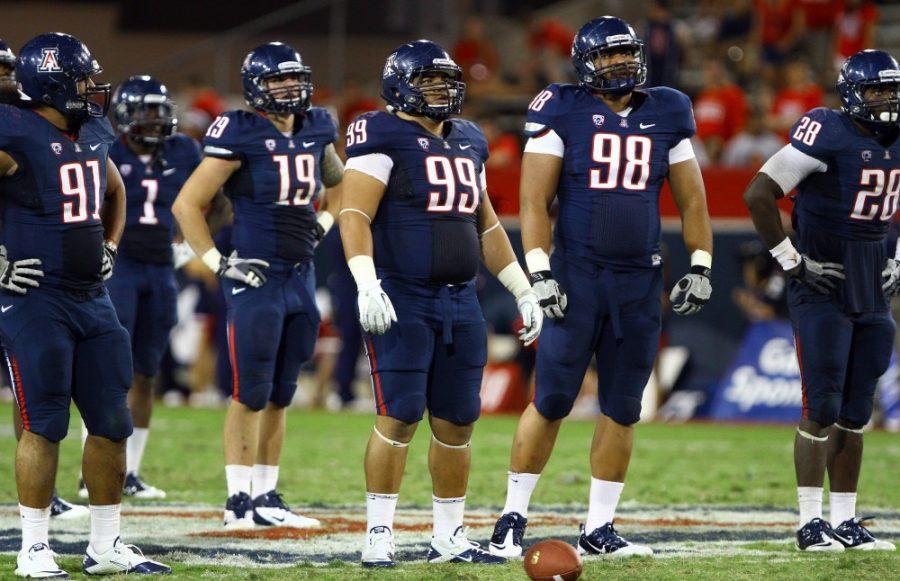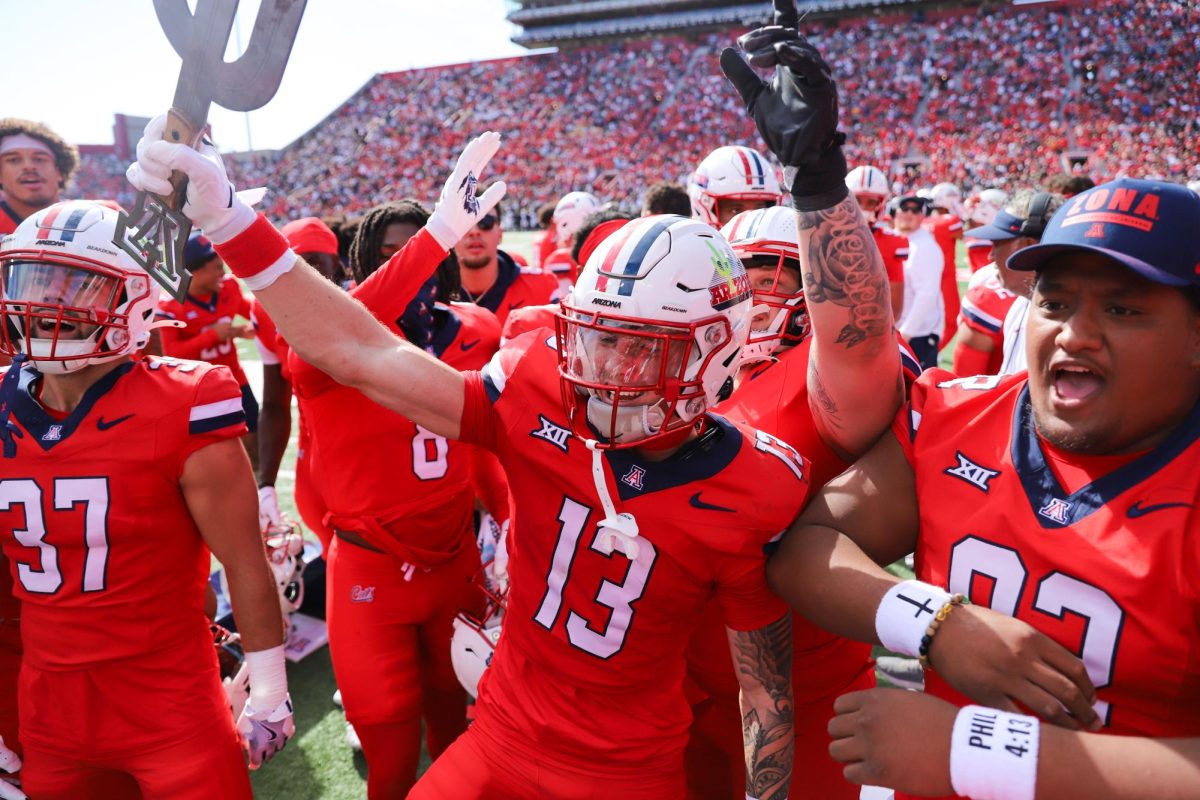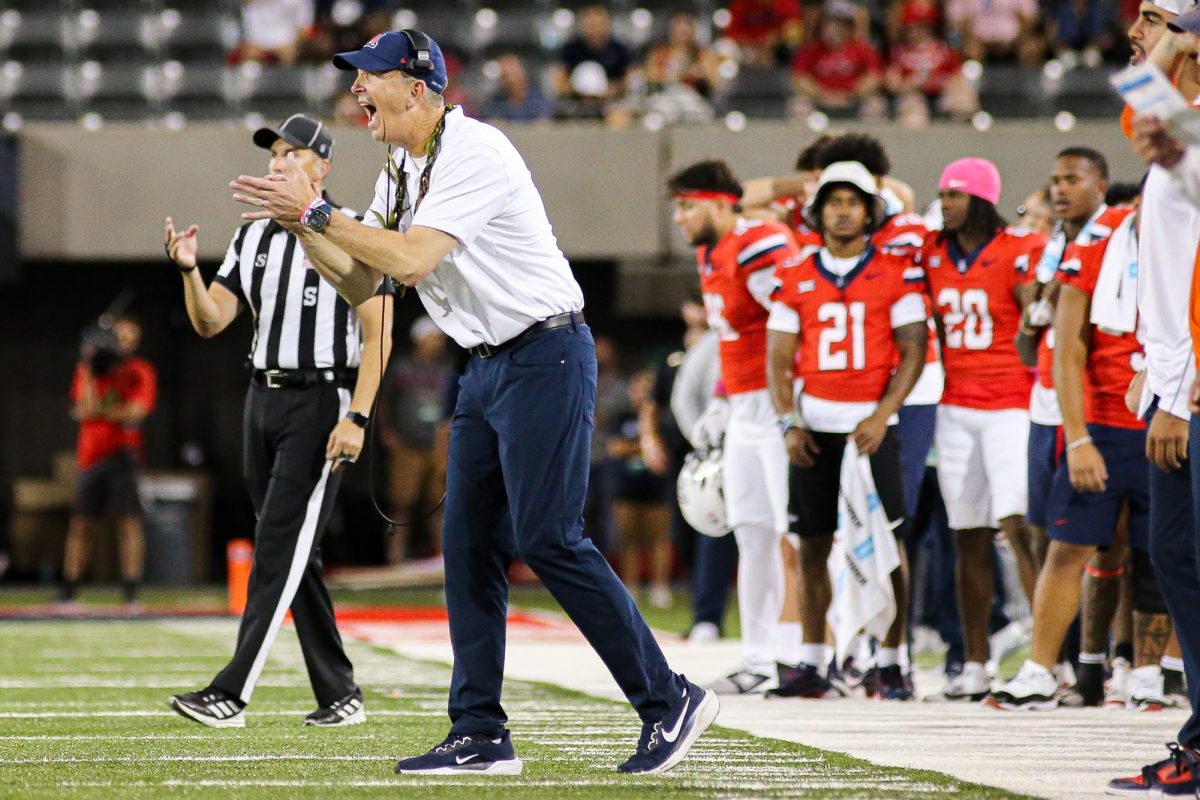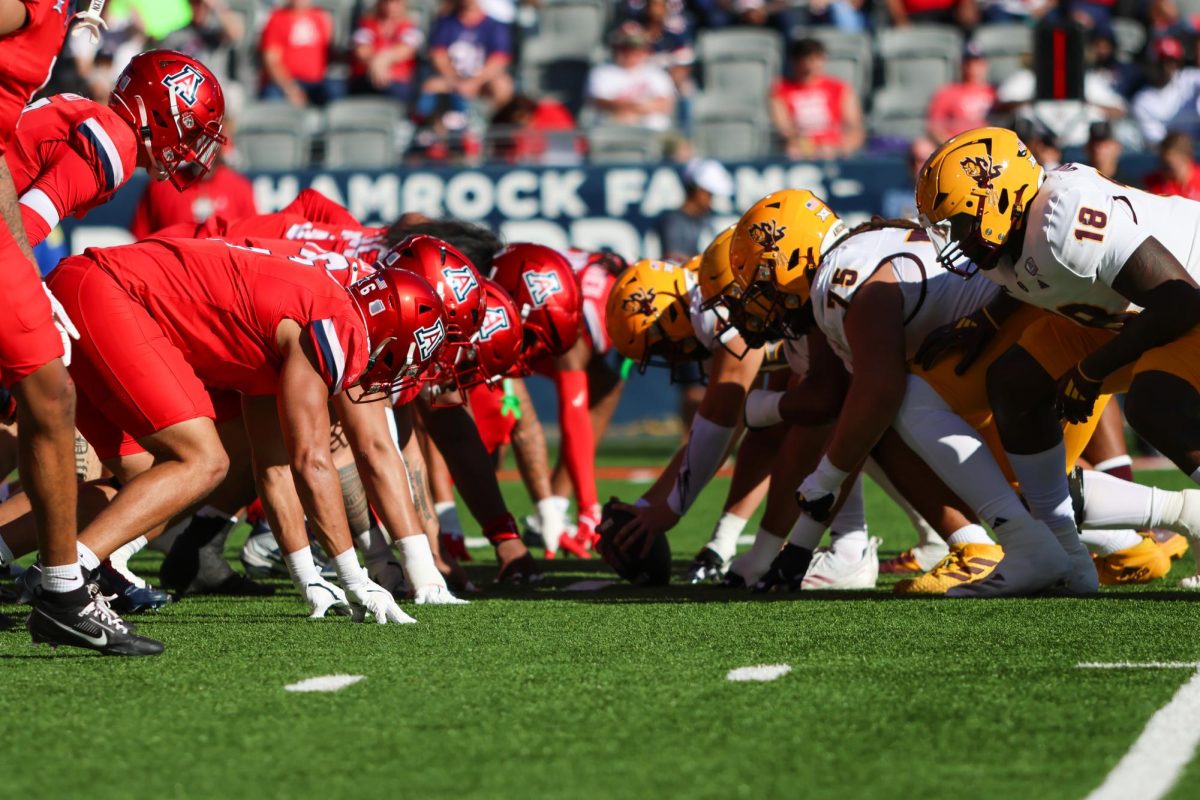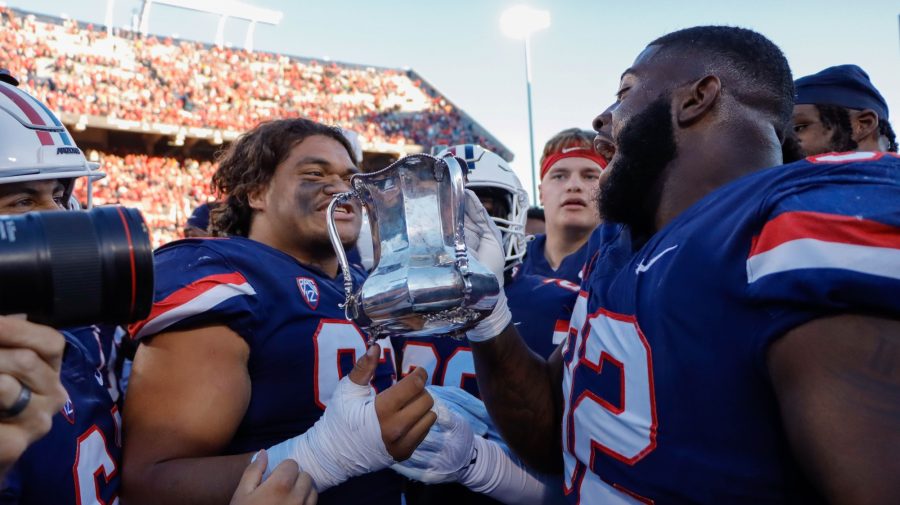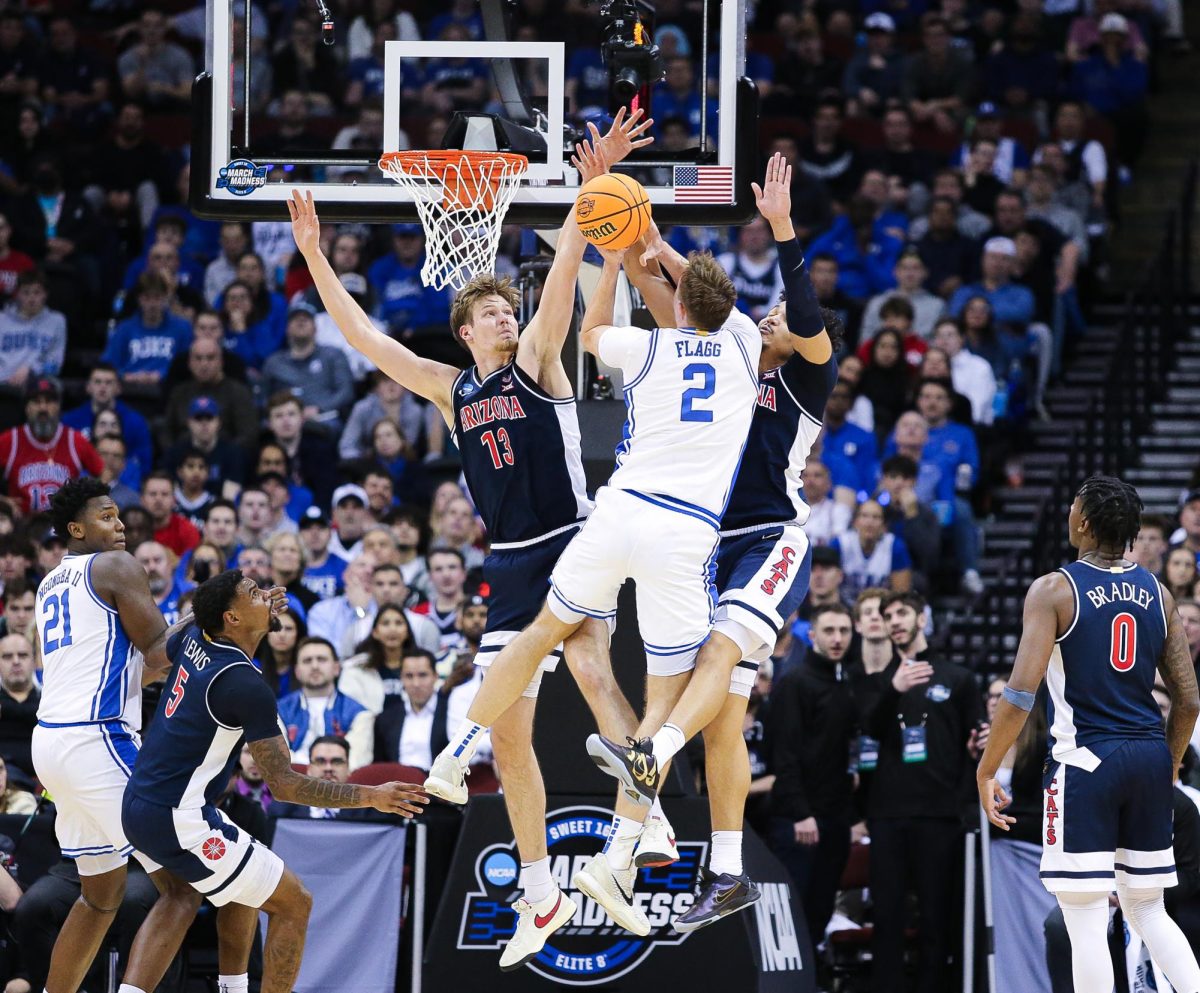When Arizona takes on Colorado on Saturday, the Wildcats will be up against something they haven’t faced all season: elevation.
Boulder, Colo., is located about 3,100 feet higher above sea level than Tucson, which sits at about 2,400 feet. Higher elevation means air holds less oxygen and less resistance, which allows balls to fly slightly farther,, but Arizona (2-7, 1-6 Pac-12) secondary coach Ryan Walters, who spent five years at Colorado as a safety, isn’t worried.
“Just go out and play, man,” Walters said. “Obviously everybody talks about it when they go there, but once the whistle blows, it’s not thinking about whether or not you can breathe. It’s about thinking about where I’ve gotta line up, tackle, all that.”
Quarterback Nick Foles also thinks the concept of playing at a high elevation is overblown. Even though he’s never played at Colorado (1-9, 0-6), Foles didn’t seem to think the higher elevation would affect his passes much.
Walters said that because of the nature of football and the downtime between plays, the effects of playing at a high elevation won’t likely be seen unless it’s at the end of a long drive.
“You get so many breaks in between plays,” Walters said. “I think if you’re playing a sport like basketball, then you might be a little more affected because you’re constantly on the move.”
The Wildcats will also play in cold weather for the first time this season, but that’s nothing new for Foles, who spent his freshman season at Michigan State.
“It’ll be a little different, but football in cold weather is just a change of atmosphere,” Foles said.



